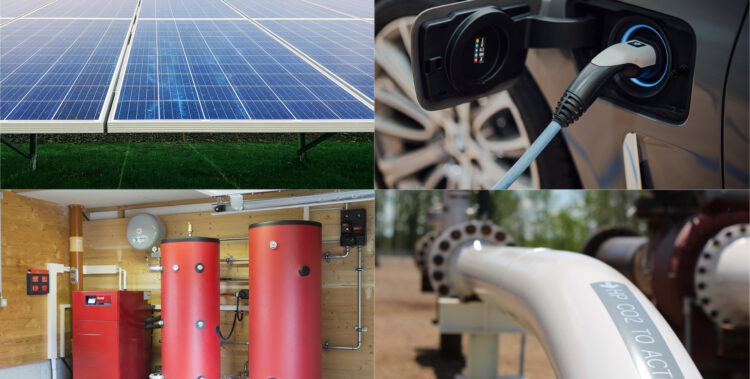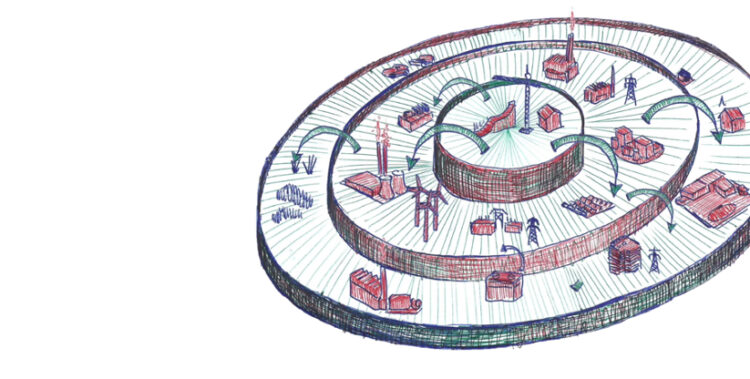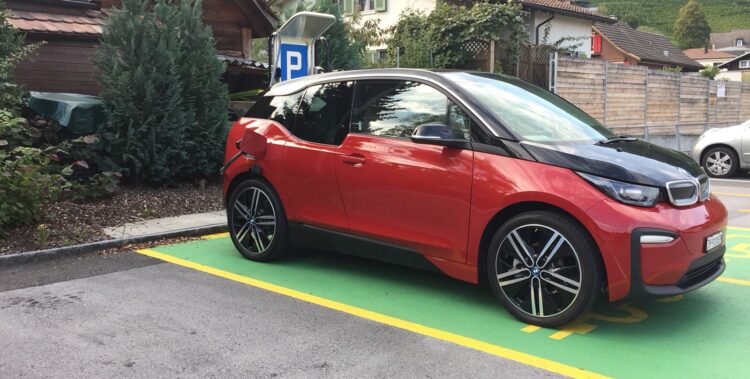
Green coalitions’ contradictions – why we need innovative policies for building stock decarbonization
On 05.01.2022 by Ivalin PetkovProminent policy initiatives all over the globe are polarizing society for how to govern an increasingly unaffordable building stock in the era of sustainability – even in the quaint city of Basel in traditionally neutral Switzerland. While our readership is primarily concerned with energy and CO₂, here I present an emerging conflict between social and environmental policies in the building sector – primarily due to the silo mentality of (green-leaning) politicians and policymakers. I argue why we need to break down these silos by innovating our current arsenal of policy tools to achieve the broader set of goals. Read More

Why old buildings matter – The story of building refurbishments
On 10.06.2021 by Mario FreiIt is estimated that buildings are responsible for 36% of global final energy use and 40% of the energy-related greenhouse gas emissions in Europe. Buildings are also complex machines with long life cycles, which include regular maintenance and updates. Thus, buildings and particularly building refurbishments provide manifold and exciting opportunities to address climate change issues at low cost and with (free) co-benefits. Read More

Keeping it cool in Switzerland: The critical impact of air-conditioning uptake
On 11.05.2021 by Robin Mutschler, Philipp Heer, Sven Eggimann, Martin RuedisueliToday, only a minority of Swiss households have air conditioners installed for cooling. This might change due to the warming climate and the growing integration of heat pumps to new buildings, which can be used for heating and cooling. The Swiss cooling energy demand may reach a similar order of magnitude compared to the heating demand by mid-century onwards, which could have a significant impact on the energy system. Read More

Why we need net-zero emissions scenarios for mid-century
On 27.04.2021 by Gianfranco GuidatiOur goal is not to predict the future, rather to shape it. Net-zero scenarios for the energy system help us do that. Although they deliver only a blurred view of the future, they allow us to guess the shape of things to come, and most importantly to formulate actions for today that will put us on the right track. Read More

Let’s pay more attention to the co-benefits of Switzerland’s decarbonization targets
On 19.04.2021 by Massimo Filippini, Florian Landis, Gustav Fredriksson, Jonas SavelsbergTo help keep global warming in check, Switzerland has committed to a net-zero emissions target by the mid-century. The required energy transition will likely give rise to costs, but it will also yield large co-benefits in terms of, for instance, improved health outcomes from less pollution. These benefits from the energy transition are, however, often overlooked. We argue that to take sound decisions related to the energy transition, it is important to consider all the associated costs as well as benefits. Read More

福島から10年後 – When institutional incumbents hinder energy transitions: Japan’s energy story
On 29.03.2021 by Bessie NollBessie is a PhD student in the Energy Politics Group at ETH Zurich studying the transport transition. As part of a mid-PhD internship with the Schweizerische Energie-Stiftung (SES), she travelled to Japan in January 2021 to research and report on the 10-year anniversary of the Fukushima disaster of 2011. A more detailed reporting as part of the SES project can be found here. Read More

Embracing globalization to foster the energy transition
On 02.03.2021 by Xuqian YanGlobalization could benefit the energy transition in many ways. Inevitably, however, some factors might hinder the process, such as resistance from the current beneficiaries and concerns for energy security. With an empathetic mindset and willingness to find win-win solutions, we could hopefully solve the issues and fully utilize the power of globalization to foster the energy transition. Read More

When computational models can evaluate the impact of policies objectively, why are they rarely used in public policymaking?
On 14.12.2020 by Marius SchwarzWhat should the future Swiss energy system look like? How can nuclear power be replaced? Will we have enough electricity on days where no sun is shining, no wind is blowing, and heating demand is high? Without clear answers, the discussion on the future Swiss energy system becomes bipartisan and emotional. Computational models can provide answers, facilitating a discussion less driven by subjective impressions but rather by profound technical analysis. Read More

Beyond more Chargers for Electric Vehicles in Zurich
On 10.11.2020 by Gracia BrückmannThe conventional wisdom is that to increase battery electric vehicle (BEV) uptake, we need more charging points. However, when we spoke with citizens, car dealership representatives, representatives from car import companies, and local government about the challenges and opportunities for BEVs in Zurich, they mention different challenges, too, and present solutions to overcome them e.g., including BEVs in coherent sustainable transport systems and reducing political uncertainty. Read More

Building Resilience to the Next Pandemic: The “Power” of sub-Saharan Africa’s Off-grid Electricity Sector
On 13.07.2020 by Churchill Omondi AgutuIn the wake of the current global pandemic, building resilience to future pandemics will be on the minds of many policymakers going forward. For sub-Saharan Africa, linking electrification with essential services such as healthcare, clean water and sanitation, could do double duty by expanding electricity access and making these countries more resilient to COVID-19. Read More

Navigating towards the future of renewable energy markets
On 08.07.2020 by Maciej SzybiakThe past decade was undoubtedly a great period for renewable energy (RE) sector. In 2019 alone, the total investment in RE projects worldwide amounted to over USD 250 billion, what equals one-third of the Swiss GDP or construction of 170 Wembley stadiums. However, investing is just the first element in the business puzzle. The question now is how to make RE projects profitable or at least non loss-making. Power Purchase Agreements (PPAs) seem to be a promising systematic solution Read More
Archives
- June 2024
- May 2024
- April 2024
- January 2024
- December 2023
- October 2023
- August 2023
- July 2023
- June 2023
- May 2023
- April 2023
- March 2023
- February 2023
- December 2022
- November 2022
- October 2022
- September 2022
- July 2022
- May 2022
- April 2022
- March 2022
- February 2022
- January 2022
- December 2021
- November 2021
- October 2021
- July 2021
- June 2021
- May 2021
- April 2021
- March 2021
- February 2021
- January 2021
- December 2020
- November 2020
- October 2020
- September 2020
- July 2020
- June 2020
- May 2020
- April 2020
- February 2020
- January 2020
- December 2019
- November 2019
- October 2019
- September 2019
Calendar
| M | T | W | T | F | S | S |
|---|---|---|---|---|---|---|
| 1 | 2 | 3 | 4 | 5 | 6 | |
| 7 | 8 | 9 | 10 | 11 | 12 | 13 |
| 14 | 15 | 16 | 17 | 18 | 19 | 20 |
| 21 | 22 | 23 | 24 | 25 | 26 | 27 |
| 28 | 29 | 30 | ||||
Categories
- Buildings
- Buildings
- Carbon Removal
- Carbon Removal
- Climate Change
- Climate Change
- Consumer Behavior
- Consumer Behavior
- Economics & Policy
- Electricity
- Electricity
- Energy Efficiency
- Energy Efficiency
- Energy Supply
- Energy Supply
- Heating
- Heating
- Industry decarbonization
- Mobility
- Renewable Energy
- Smart Energy
- Smart Energy
- Society
- Society
- Storage
- Transportation
- Transportation
- Uncategorized
